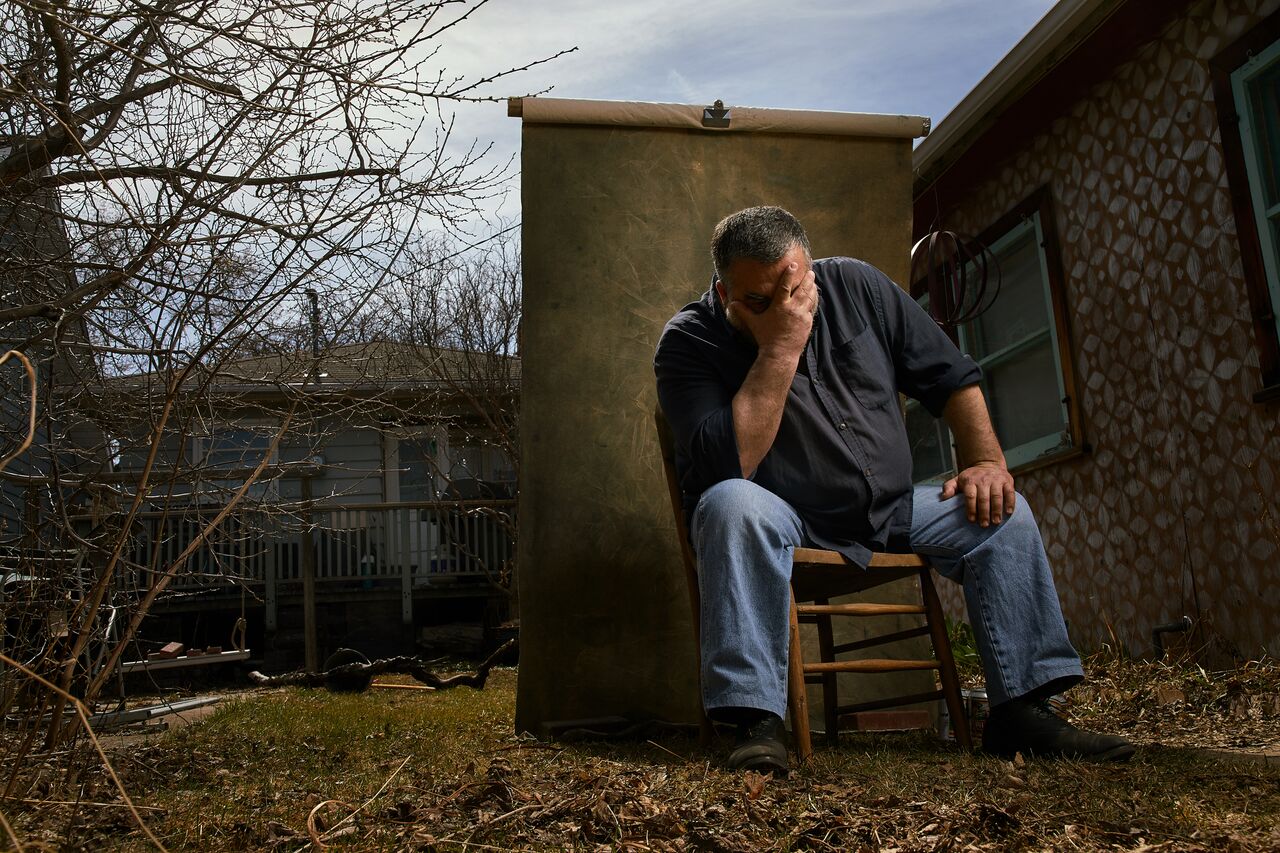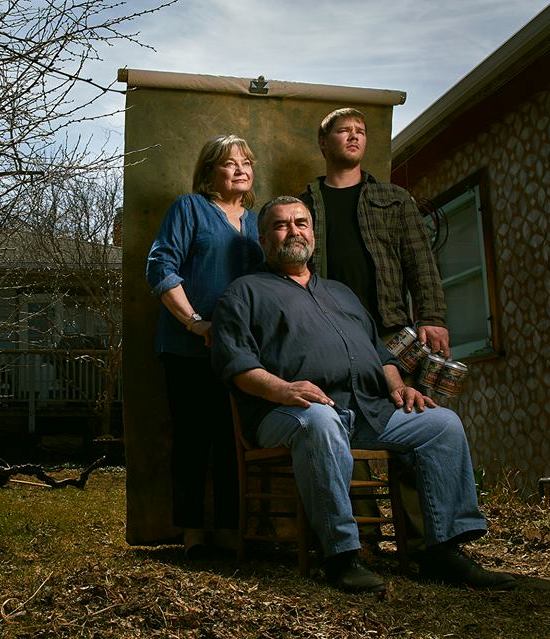Terry and the Dog intense, disquieting, touching
Posted on May 11, 2018 By Colin MacLean Entertainment, Front Slider, Theatre
 A man sits on his porch and waits for his dog to come back to life.
A man sits on his porch and waits for his dog to come back to life.
“Buddy” is dead – and not for the first time. His master Terry is pushing at the outer edges of middle age, and is a recovering alcoholic. Twice before in a drunken stupor he has accidentally killed Buddy – and twice the dog came back, wagging his tail and licking his master’s face.
So Terry sits and waits. In the meantime he tells us of his cratered life and how booze has taken its toll. It’s a powerful but melancholy tale that’s hard to watch and impossible to shake. What moves it far beyond the familiar story of the ravages of alcoholism is the heartfelt writing of Collin Doyle (based on experiences in his own life – according to the program) and anchored by three strong and naturalistic performances.
At the Studio Theatre in the Arts Barns until May 19, the play is from Edmonton Actors Theatre, founded by local director Dave Horak (who also directs here). The relatively new company has already established an impressive reputation. They are responsible for such well-crafted productions as Stupid Fucking Bird, Burning Bluebird and Fatboy. Their plays come from American contemporary alternative theatre but are as accessible, accomplished and as entertaining as anything we’ve seen on a stage. Doyle’s Dear Penthouse and Nighthawk Rules (with Murray Hamilton) were sell-out hits at the Fringe; and his Slumberland Motel was a solid, funny show for Shadow Theatre earlier this year.
Terry and the Dog is intense, disquieting and in the end, touching.
 Played by Robert Benz, Terry is destroying his family: His supportive-but-at-the-end-of-her-rope wife Diane (Maralyn Ryan) and his loving young child, Ken (Cole Humeny). It’s a situation that can’t continue. After being beaten, Diane leaves him. Their son grows to hate him, remembering, “You were the boogey man of my childhood.” Terry tries hard, and falls hard. “I’m not taking you back,” says his wife.
Played by Robert Benz, Terry is destroying his family: His supportive-but-at-the-end-of-her-rope wife Diane (Maralyn Ryan) and his loving young child, Ken (Cole Humeny). It’s a situation that can’t continue. After being beaten, Diane leaves him. Their son grows to hate him, remembering, “You were the boogey man of my childhood.” Terry tries hard, and falls hard. “I’m not taking you back,” says his wife.
But she will. He joins A.A, and dries out, and these two loving, hurting people find each other again – but then to their everlasting heartbreak their beloved child begins down the same path that nearly destroyed his father.
The three actors perform together with the intimacy, clarity and low-key inner vitality that might remind one of a string trio. Ryan’s quiet Diane is a gentle eye of the storm, yet the actress give her enough spunk so that you can readily perceive how she could leave when there was no other way out. The heartbreak of Humeny’s Ken is of the little kid who loved his father, and as a husband and father himself, seems doomed to follow his father – even though he and his dad have rediscovered each other in later years. Benz, who never leaves the stage, is commanding and passionate, delivering a controlled performance that never hides his pain. He battles his addiction, does the best he can for his family and is achingly human throughout.
Performances this good cry out for a sympathetic director, and the play has found that in Horak. Guido Tondino and Victoria Zimski’s set is composed of whitewashed, broken boards that make up the floor and hang as splintered walls that intimately bring the audience into the story. That intimacy is heightened by the lighting design.
Doyle’s characters have considerable heft. They are not complicated, but are capable of great love. The playwright has a real ear for everyday dialogue, and the occasional turn of phrase that will catch you up. One character observes, “Our time together was like a glance over the shoulder. One second – and it was gone.”
Photos by Ryan Parker











